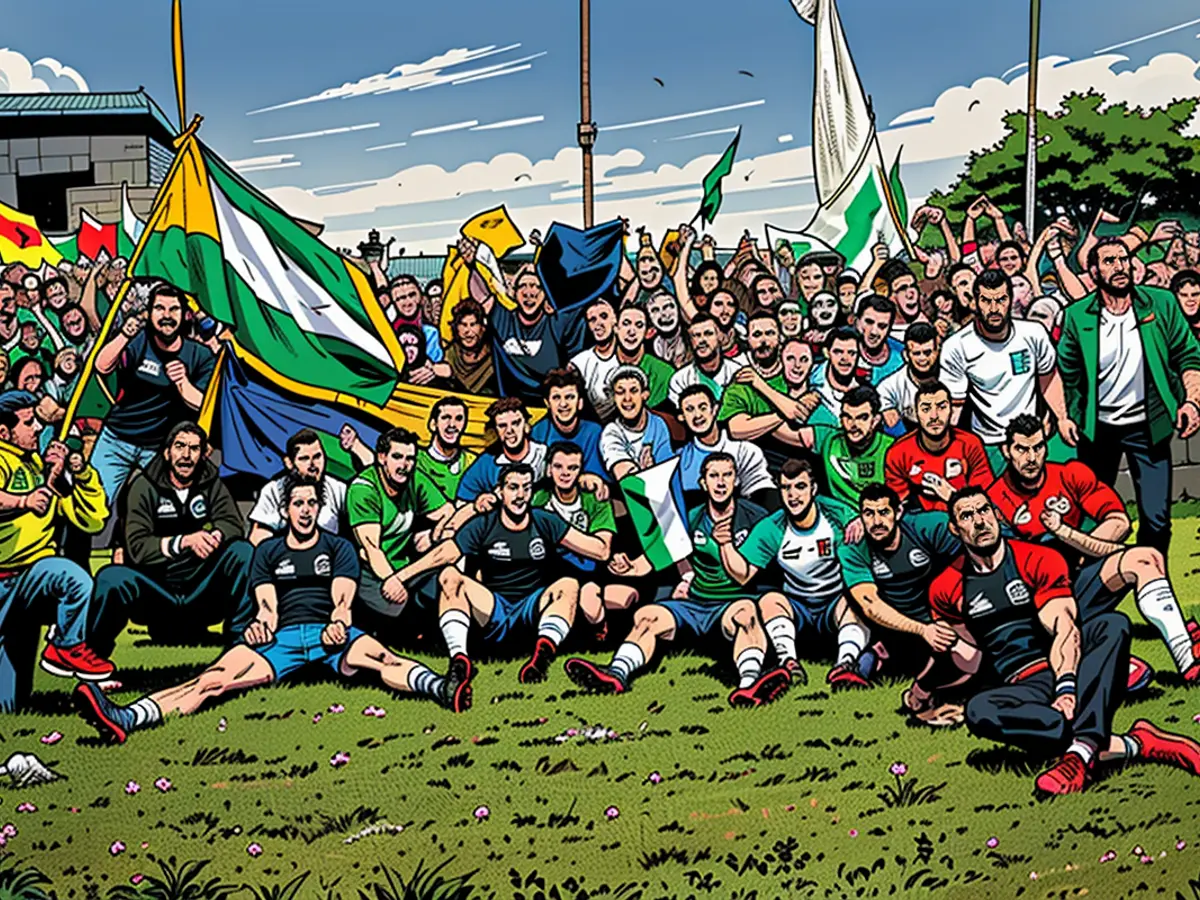' Beyond being mere conflict': Insights from the Palestinian women's soccer team as they re-emerge on the field
Since the onset of conflict in Gaza, it was the first time the Palestinian women's soccer team convened, serving as a constant source of trauma for Palestinians both within and outside the enclave.
The team was heading to Dublin, Ireland, marking the first time a senior Palestinian women's team has competed in Europe.
In a heartfelt conversation with CNN, a 26-year-old, a winger for the team, explained the emotional scene at the airport, with tears flowing freely as it was the only opportunity to reunite. "Everyone was crying at the airport because that's literally the only way for us sisters to meet. No one is playing. People are dying," she shared, speaking from her home in the West Bank.
The planned start of the 2023 Palestinian-based women's league was scheduled for October 9, 2023, merely two days following Hamas' devastating attack on Israel, triggering a military campaign resulting in the death of tens of thousands and displacement of over a million more.
Overcoming months of worry and fear for their relatives and friends trapped in Gaza, the team finally found solace in their 90-minute game against local Irish club Bohemians FC in May.
The match held additional significance, being played on the 76th anniversary of the Palestinian Nakba, a period marked by approximately 700,000 Palestinians fleeing their homes or being expelled by Jewish militia groups.
Throngs of Palestinian flag-waving fans flocked to Dublin's Dalymount Park, with the proceeds allocated to aid organizations supporting Palestinian refugees. Irish President Michael Higgins was among the spectators.
Shortly after the match, Ireland made headlines by recognizing Palestinian statehood, joining forces with Spain and Norway in the controversial decision that faced Israeli condemnation.
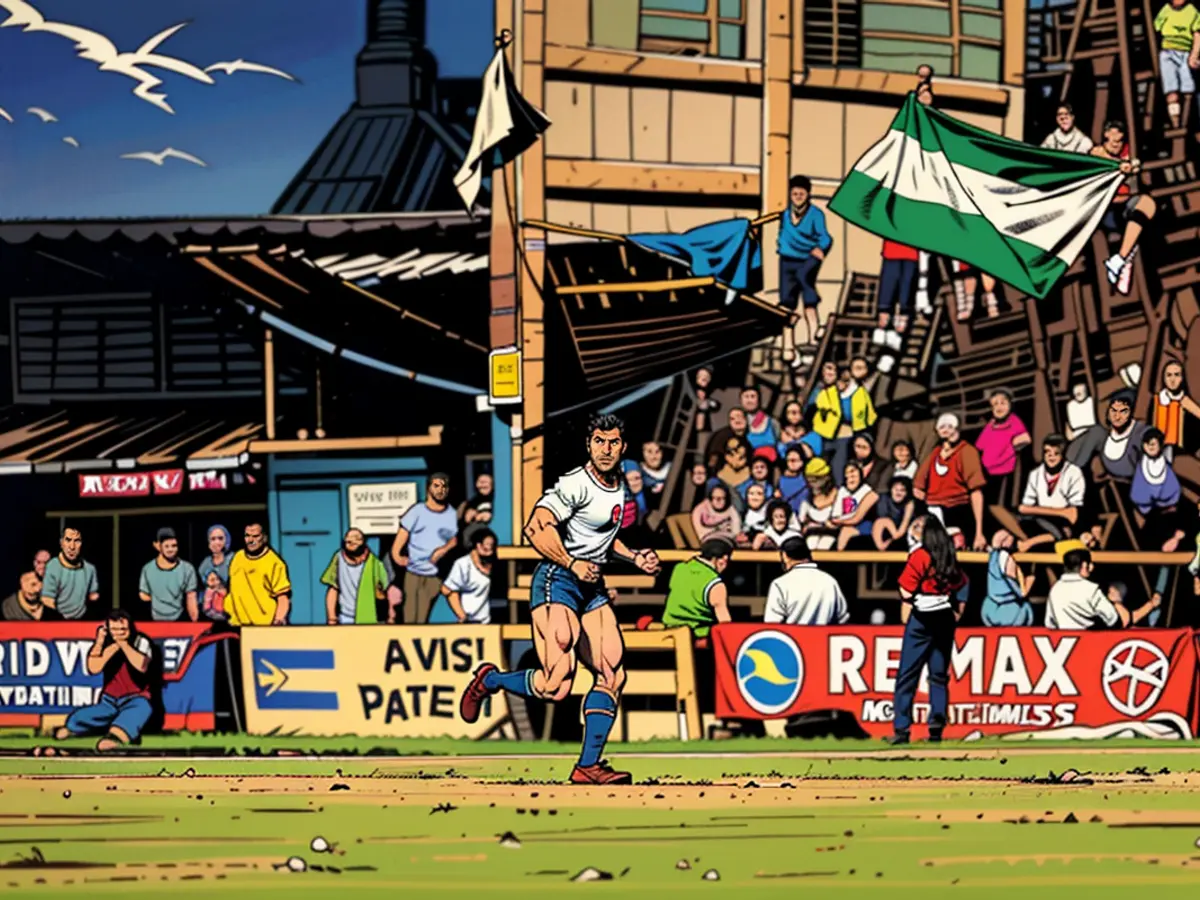
Ireland boasts a solid support for the Palestinian cause and previously interjected against Israel in the genocide case at the International Court of Justice.
While the final score saw the Palestinian side triumphing 2-1, the match itself carried more importance.
"Leading the team out was unforgettable," commented 25-year-old captain Mira Natour, a doctor returning to her post at a Bethlehem hospital in the West Bank. "It was a moment filled with immense pride and a heavy sense of achievement. Not just for me, but the entire team and our nation. It was a symbol of our resilience; representing Palestine on the international stage despite all the challenges we face."
Abuaita, a teammate who travels between Bethlehem and France to support displaced Palestinian women and children, shared her "surreal" experience returning to competitive soccer, feeling a surge of emotions.
Having last played in her club's Palestinian Cup victory, she described the sensation as "amazing," with a heightened sense of pride donning the team kit. "With everything that's happening lately, it's like double the goosebumps."
'Sisters' unite
Hailing from diverse backgrounds, the Palestinian players traveled to Ireland, originating from occupied West Bank and East Jerusalem, and others from the global diaspora tens of thousands of miles away from their homeland.
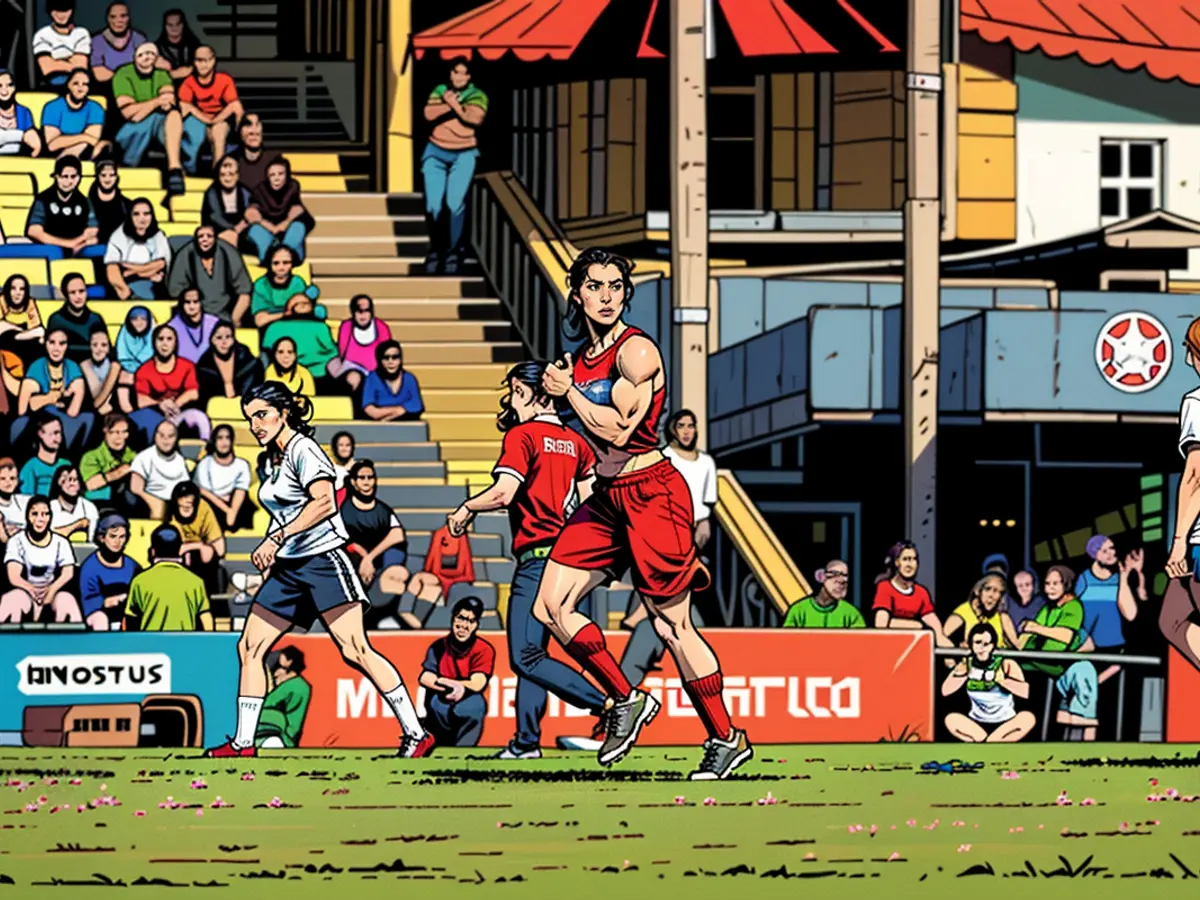
Five team members from the West Bank, including Abuaita, had to traverse to Jordan and fly respectively from Queen Alia Airport. While the distance may be short, the journey consisted of three checkpoints, making the trip an extensive ten-hour ordeal.
Regrettably, no players hailing from Gaza, shackled by the Israeli blockade, could join the team.
"Unfortunately, we don't have players from Gaza on our team. One primary reason for this is the blockade imposed on Gazans since 2007," said team manager Deema Yousef.
"This means citizens find it difficult to leave the enclave without a permit granted by the Israeli government, which is notoriously challenging to obtain" added Yousef, a representative of the Palestinian Football Association.
Other players joined from the Palestinian diaspora residing in Germany, Sweden, Canada, and Saudi Arabia.
Eighteen-year-old goalkeeper Charlotte Phillips was born in Canada to a Bahamian father and Palestinian mother.
Phillips' grandparents, George and Odette, had firsthand experience of the Nakba, losing family members in front of them.
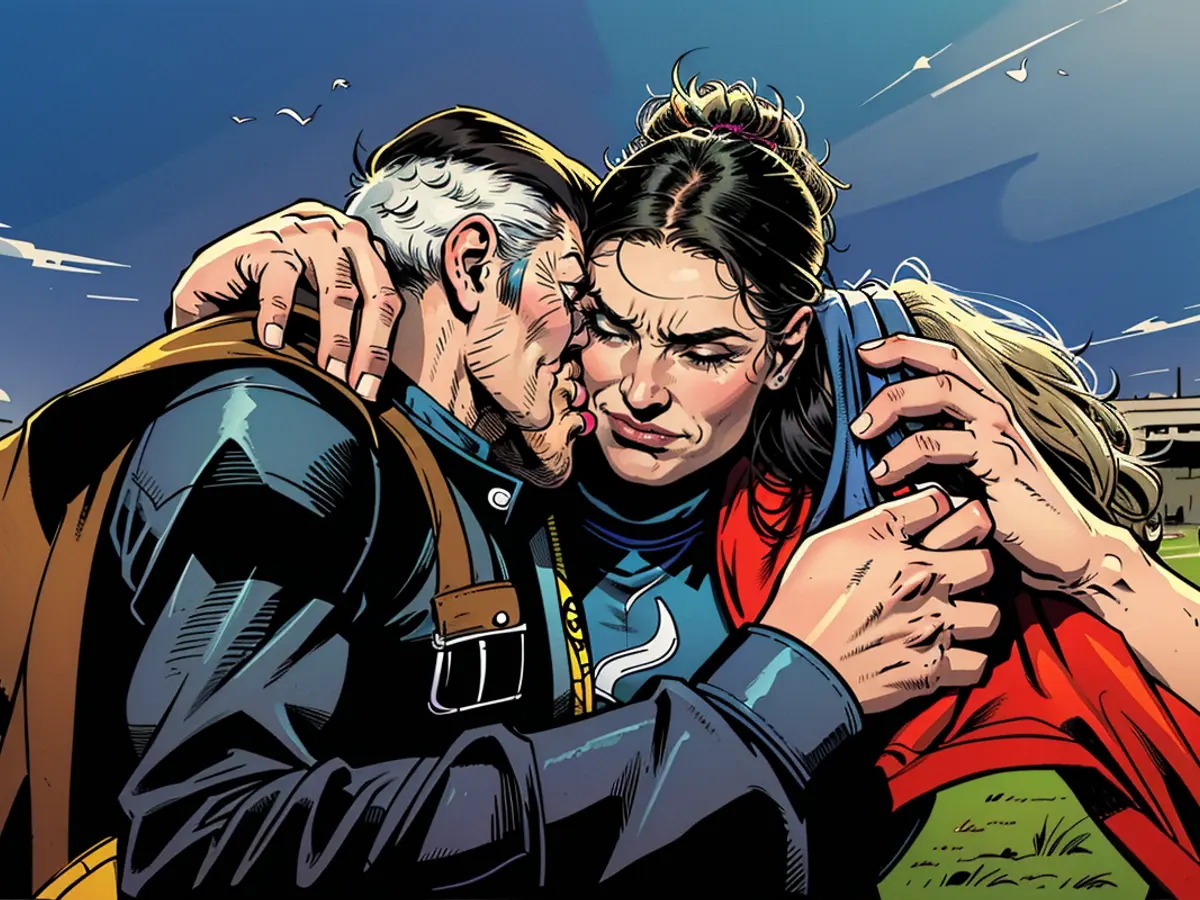
Forced to leave Jerusalem in the mid-70s, they settled in Canada and opened a successful Palestinian restaurant in Toronto, shared Phillips, now a student at the same university in Toronto.
"I can't always fully relate to the struggles," Phillips admitted. "I understand what it means to be Palestinian in Canada, but I don't know what it means to be Palestinian living in occupied Palestine. So, playing in a game like that in front of my teta (grandmother) and sidi (grandfather) was a profound moment in our family history."
Regardless, each team gathering – such as the match in Ireland – is emotionally charged.
"It was so incredibly emotional," Phillips recollected.
"We play for those who lost their lives, for the footballers and athletes who were brutally taken away. In Gaza, all the stadiums were demolished, leaving no place for athletes to play. Being able to show that we're still standing and continuing the fight in Palestine is a tremendous honor," she expressed.
Ever since the game in Dublin, both the Palestinian men's and women's teams have participated in several international friendly matches. The men's team is still in the running for a spot at the 2026 FIFA World Cup in the United States, Mexico, and Canada, following their notable performance in the Asian group stages this summer.
"Football serves as a beacon of hope and unity for our people. It offers us a platform to share our tale – we are more than just a conflict," declared team captain Natour.
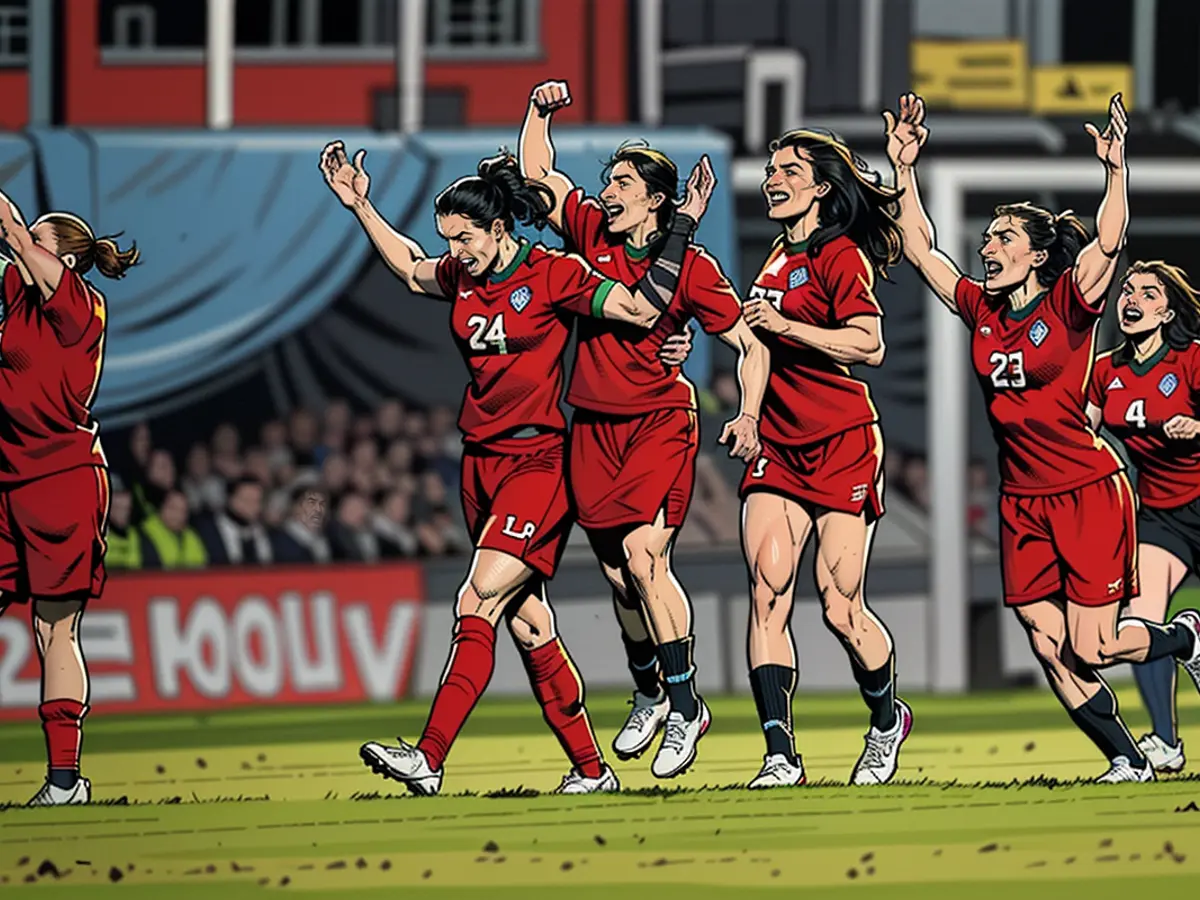
"Above all, it encourages the younger generation to envision a brighter future, no matter the circumstances. Glancing at my teammates, each with their distinct backgrounds and skillsets, I'm reminded that we're not just athletes, but influencers and champions for our nation, both on and off the field."
The Palestinian women's soccer team's journey to Dublin marked a significant moment in the Middle East, as it was the first time a senior Palestinian women's team competed in Europe, gaining attention from the world. Despite the ongoing conflicts and Israeli condemnation, Ireland recognized Palestinian statehood after the match, further highlighting the team's impact on a global stage.
